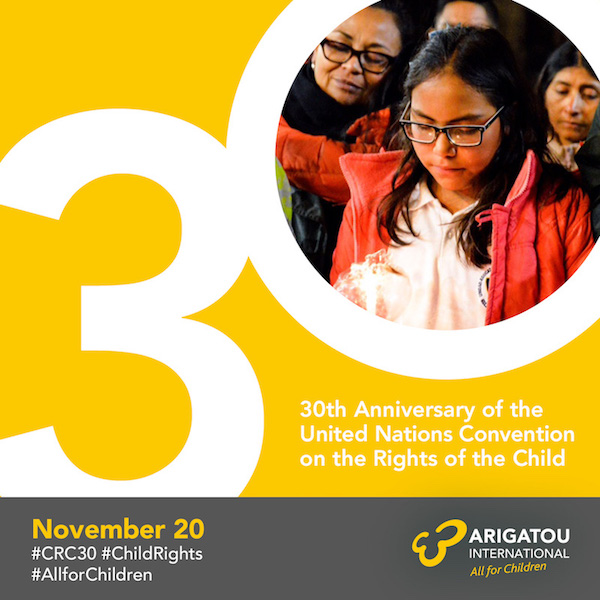The United Nations Convention on the Rights of the Child (CRC) is a comprehensive, internationally bonding treaty on the rights of children; adopted on 20th November 1989 by the United Nations General Assembly. This year (2019) marks the 30th anniversary since adoption of the CRC.
 This landmark human rights treaty sets out the civil, political, economic, social and cultural rights of every child, regardless of their race, religion or abilities. In particular, the Convention recognizes the right of every child to a standard of living adequate for the child’s physical, mental, spiritual, moral and social development. The convention in article 12 also recognizes the right to children to be able to express themselves freely on issues affecting them, thus children must be recognized as full actors in their own well-being rather than be passive objects of choices made on their behalf.
This landmark human rights treaty sets out the civil, political, economic, social and cultural rights of every child, regardless of their race, religion or abilities. In particular, the Convention recognizes the right of every child to a standard of living adequate for the child’s physical, mental, spiritual, moral and social development. The convention in article 12 also recognizes the right to children to be able to express themselves freely on issues affecting them, thus children must be recognized as full actors in their own well-being rather than be passive objects of choices made on their behalf.
Principles of the CRC
The CRC has four general principles:
Non-discrimination: Children must not suffer discrimination “irrespective of the child’s or his or her parents’ or legal guardian’s race, color, sex, language, religion, political or other opinion, national, ethnic or social origin, property, disability, birth or other status.”
Right to Life, Survival and Development: Children have a right to survival and development in all aspects of their lives, including the physical, emotional, psychosocial, cognitive, social and cultural.
Best Interests of the Child: The best interests of the child must be a primary consideration in all decisions or actions that affect the child or children as a group. This holds true whether decisions are made by governmental, administrative or judicial authorities, or by families themselves.
Respect for the Views of the Child: Children must be allowed to be active participants in all matters affecting their lives and be free to express their opinions. They have the right to have their views heard and taken seriously.
The CRC and Child Poverty
The Convention on the Rights of the Child (CRC) does not contain an explicit human right to freedom from poverty. Hence, to measure poverty in terms of rights, a selection process is required to match these rights to the severe deprivations of basic human need that characterize poverty and cause ill health.
Article 26 (Right to benefit from Social Security) and Article 27 (Right to Adequate Standard of Living) of the CRC are significant when considering the nexus between the rights of the Child and Poverty. By virtue of their guardians, children as rights holders have the right to help from the government as duty bearers to policies and creation of conditions that contribute to an adequate standard of living and access to social security services, which alleviate poverty.
Further, when child poverty is recognized as a denial of children’s human rights then people in positions of responsibility and power are legally bound to promote, protect and fulfil children’s rights.